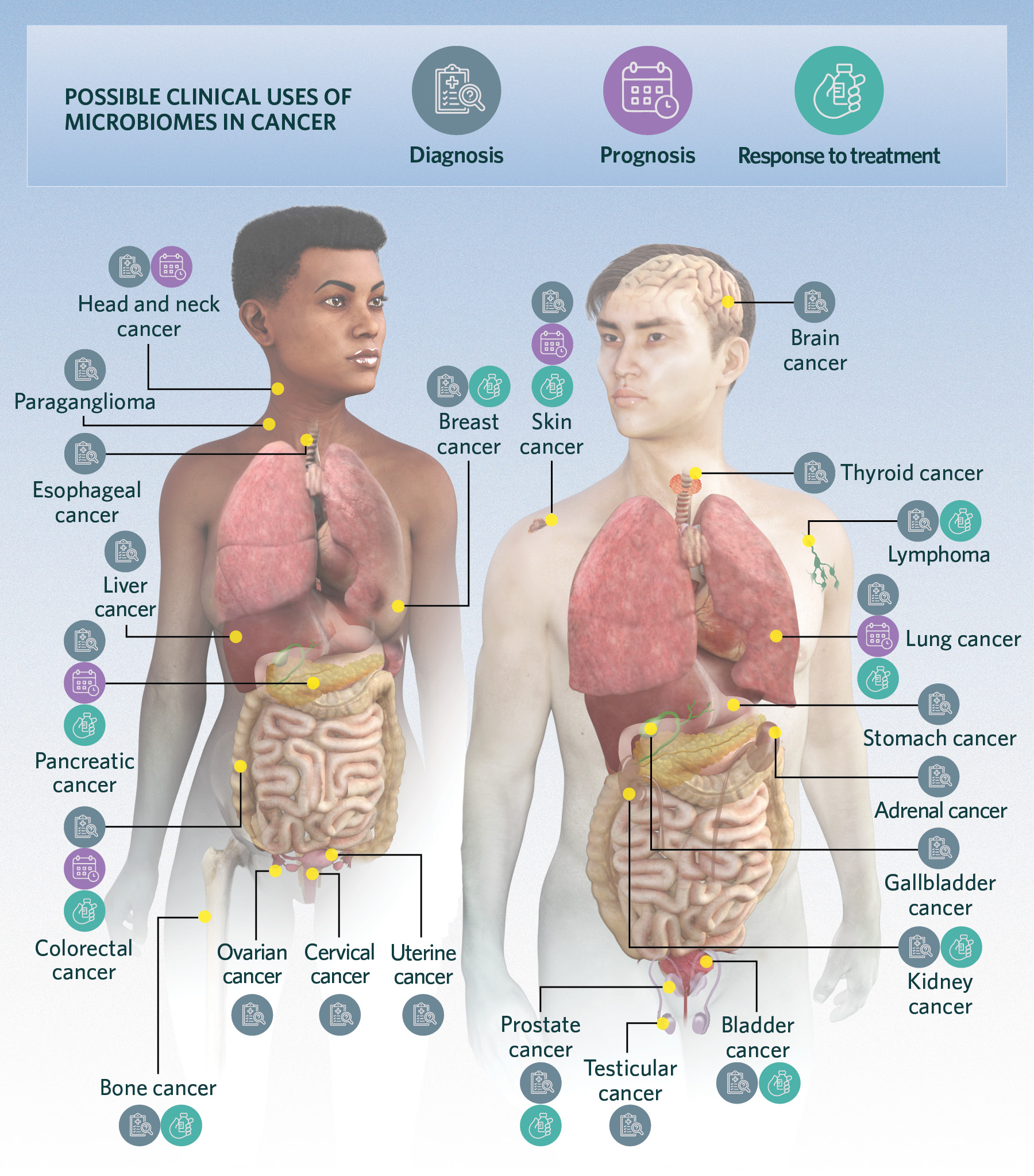In the past few years, researchers have published dozens of studies documenting the presence of bacteria and other microbes in the tumors, gut, and blood of patients with cancer. Multiple groups have uncovered preliminary correlations between microbial signatures in these tissues and a patient’s diagnosis, prognosis, or response to treatment, which could one day help inform clinical care.

Microbe-cancer interactions
A growing body of literature suggests that bacteria and other microbes living in tumors or in the guts of cancer patients may influence their responses to treatment. Conversely, cancer therapies—not to mention diet, medications, and other factors—can affect the body’s microbiota. (Dotted arrows denote unknowns.)

Microbes all around
Bacteria that reside in tumors likely come from multiple sources, including from surrounding healthy tissues and from the gut and other organs, potentially transported via the bloodstream. As cancer metastasizes, cells travelling to other parts of the body may be accompanied by bacteria originating in the primary tumor.

Read the full story.
